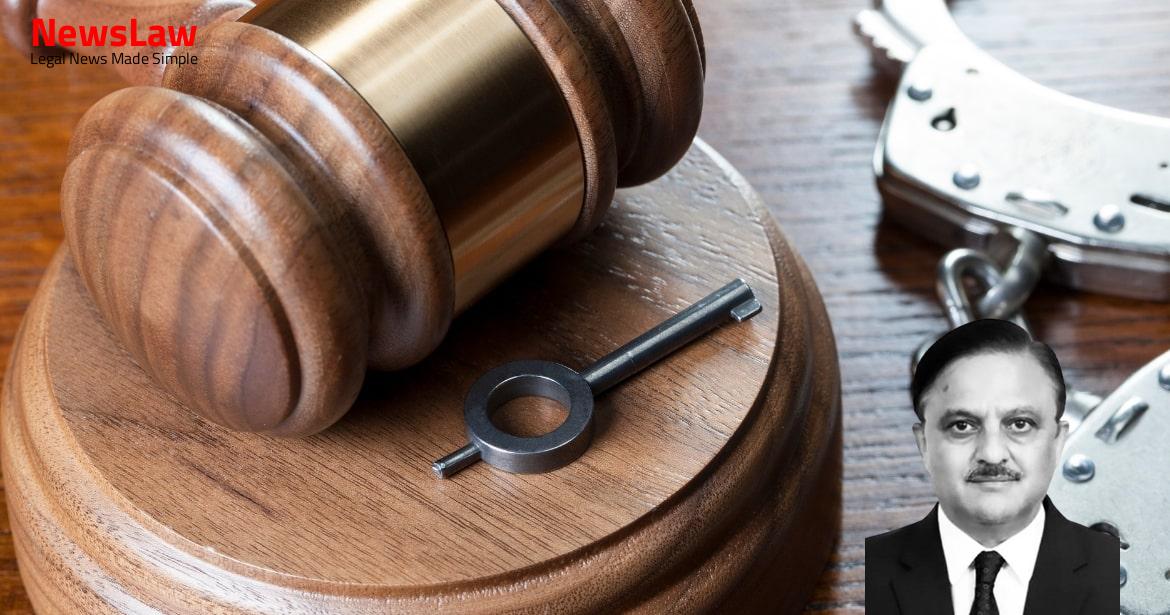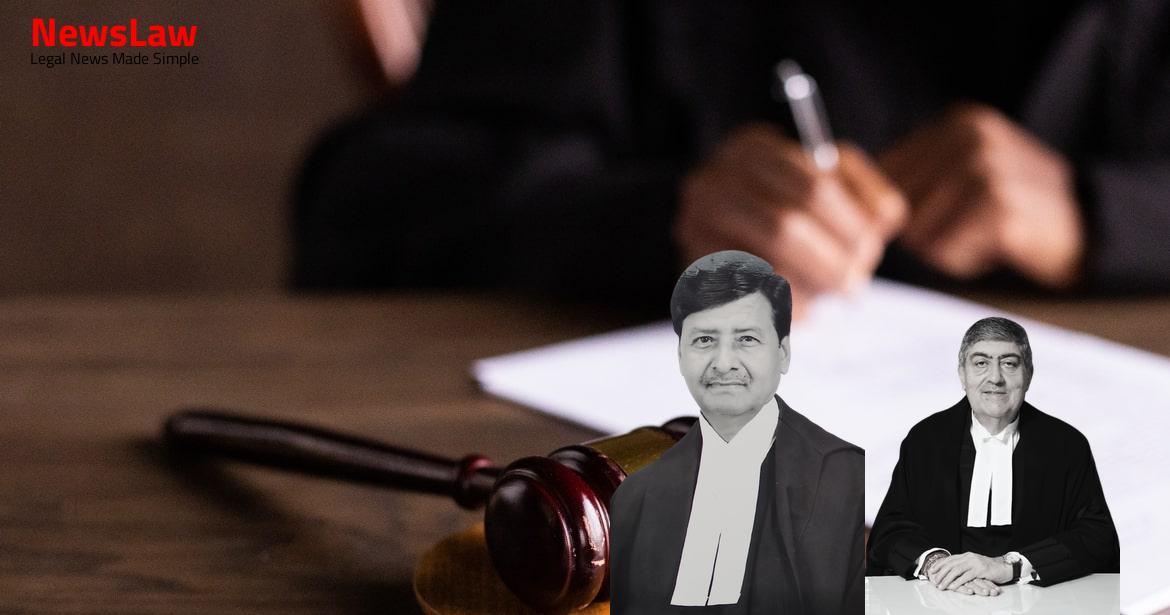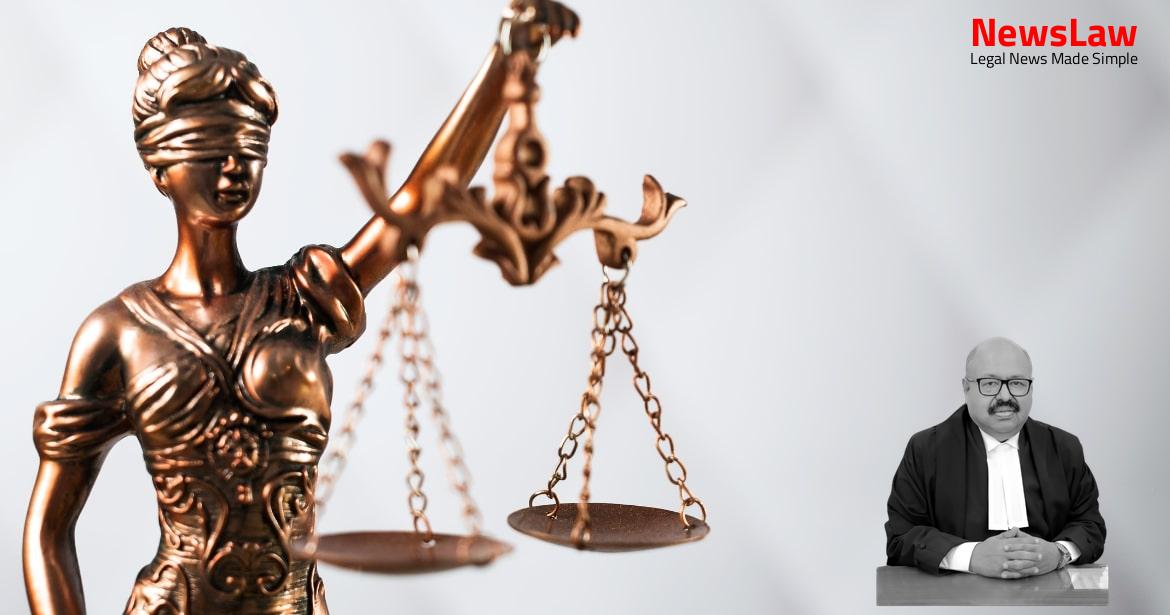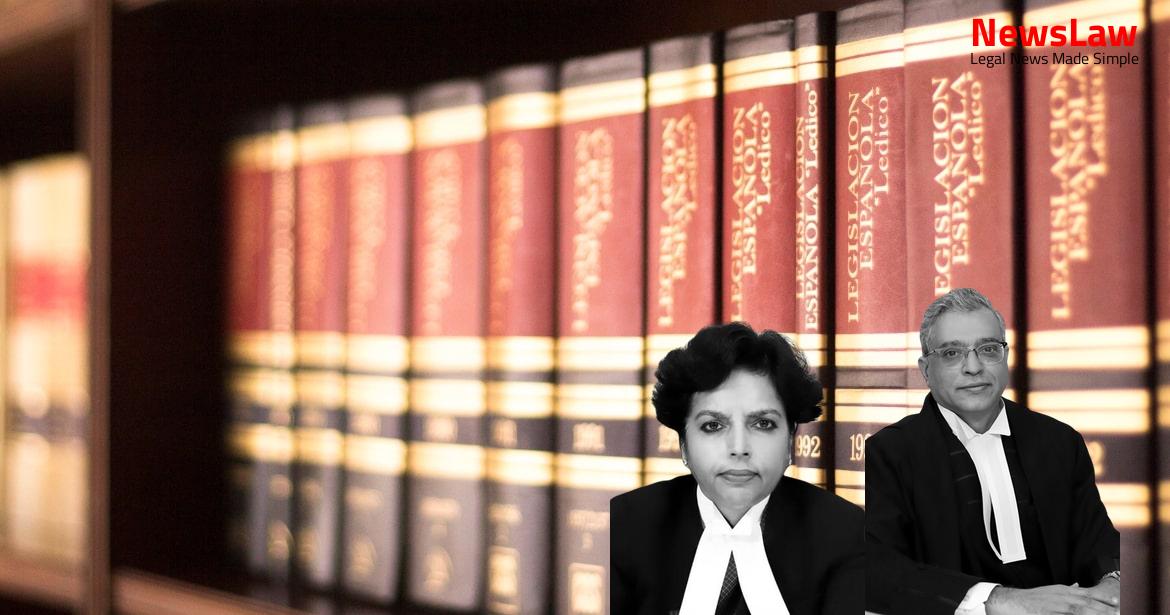In a landmark judgment, the Supreme Court of India has ruled in the Ahmad Palace Bail Case. The Court has granted bail to the appellant in a case involving alleged connections to objectionable activities of an organization called PFI at Ahmad Palace. Stay informed about this crucial decision by reading the summary of the judgment below. #SupremeCourt #BailCase #AhmadPalace
Facts
- Appellant and co-accused applied for bail before the High Court.
- Directions were given to PFI cadres to attack selected targets after remarks on Prophet Mohammad.
- Appellant received information about PFI from accused no.1.
- CCTV footage confirms presence of accused persons at Ahmad Palace.
- Appellant, accused no.1 seen shifting items from the building.
- Appellant, accused no.1 involved in renting first floor of Ahmad Palace.
- Appellant’s elder son received rent advance.
- Appellant arrested following police raid.
- Recovery and seizure of incriminating articles related to PFI.
- Appellant prosecuted under various sections of IPC and UAPA.
- Confessional statement of appellant referred to in investigation.
- Building Ahmad Palace stands in appellant’s wife’s name.
Also Read: Property Tax Dispute: Avenue Supermarts Limited vs. Municipal Corporation
Arguments
- The appellant’s wife was the owner of a building known as Ahmad Palace.
- The appellant allegedly rented out the first floor premises to accused no. 1 for objectionable activities of an organization called PFI.
- No connection has been established between the activities of PFI and the appellant based on the charge sheet.
- Prima facie material linking the appellant with PFI is not available.
- Various people occupy other premises in the building which includes a pathology laboratory, a clinic, and shops.
- CCTV cameras were fixed on the property indicating no connivance of the appellant with the alleged offenses under UAPA.
- The appellant’s actions satisfy the tests laid down by Section 43D (5) of the UAPA.
- The documents along with the charge sheet support a strong prima facie case against the appellant for involvement in UAPA offenses.
- Accused no.1, the tenant of the first floor, was an active member of the banned terrorist organization SIMI.
- Evidence shows a transfer of Rs. 25,000 to the appellant’s son from an absconding accused.
- The rent agreement for the first floor was deemed bogus and made to mislead the police.
- The appellant knowingly allowed the first floor premises to be used for PFI activities.
Also Read: Judgment in the Case of Financial Irregularities: Restoration of Removal Order
Analysis
- The judgment highlights that the PFI is not a terrorist organization according to the first schedule.
- The appellant’s son conducted negotiations for renting out the first floor, not the appellant.
- It is pointed out that the Special Court and High Court did not objectively consider the material in the charge sheet.
- The appellant is not shown to have advocated, abetted, or incited any terrorist acts.
- The charge sheet lacks material connecting the appellant to PFI when renting out the premises.
- Protected witness Z’s statement is misrepresented in paragraph 17.16 of the charge sheet.
- There is no concrete evidence linking the appellant to the activities of PFI or terrorist acts.
- The charge sheet’s content and witness statements do not support the accusation of the appellant’s involvement in UAPA offenses.
- The court emphasizes the need for fair investigation and reasonable grounds before rejecting bail.
- The content of the charge sheet and witness statements indicate a lack of evidence against the appellant.
- Paragraph 17.16 misrepresents the statements of protected witness Z regarding the meeting and activities discussed.
- The charge sheet does not accuse the appellant of being a member of a terrorist gang or organization.
- The distortion of protected witness Z’s statement in the charge sheet raises concerns and requires explanation from NIA.
- Membership in a terrorist gang or organization involved in terrorist activities is punishable by imprisonment for life and a fine.
- A terrorist gang is defined as any association, other than a terrorist organization, involved in terrorist acts.
- The act of conspiracy, attempt, advocacy, abetment, advice, incitement, or facilitation of terrorist acts is punishable by imprisonment for a minimum of five years, which may extend to life imprisonment and a fine.
- Organizing terrorist camps for training purposes is punishable by imprisonment for a minimum of five years, which may extend to life imprisonment and a fine.
- Unlawful activity includes actions intending to bring about secession or disruption of India’s sovereignty, territorial integrity, or causing disaffection against India.
- No accused individual of offenses under specified chapters of UAPA shall be granted bail unless the Public Prosecutor has been given an opportunity to oppose the application.
- The Court must consider the contents of the document and take it into account as it is.
- Admissibility of documents relied upon by the prosecution cannot be questioned.
- The Court must presume the contents of the document to be true.
- The Court must analyze the material on record as a whole and not through piecemeal analysis.
- The material forming part of the charge sheet must be examined to determine if there are reasonable grounds for believing the accusations are prima facie true.
- The Court is not required to conduct an elaborate examination of the evidence at the bail stage.
- The material on record must prevail until contradicted by other evidence.
- The Court must take the charge sheet as it is when assessing the accusations against the person applying for bail.
- Denying bail in deserving cases would violate rights under Article 21 of the Constitution
- Once a case is made out for bail, the Court cannot decline to grant it
- Bail can be granted if relevant statutory conditions are satisfied
- The principle ‘Bail is the rule and jail is an exception’ is a settled law
Also Read: Case Summary: Legal Implications for Directors in Company Affairs
Decision
- The reasons for allowing the appeal are specific to the appellant’s case.
- The impugned orders are being set aside as the appeal is allowed.
- Tentative findings in this judgment are solely for the purpose of considering bail.
- The Special Court is directed to release the appellant on bail until the trial conclusion.
- Bail terms and conditions will be determined by the Special Court after hearing the counsel for the appellant.
- The bail granted to the appellant will not impact the trial of co-accused individuals.
- The appellant must be presented before the Special Court within a maximum of 7 days for bail determination.
Case Title: JALALUDDIN KHAN Vs. THE UNION OF INDIA (2024 INSC 604)
Case Number: Crl.A. No.-003173-003173 – 2024



